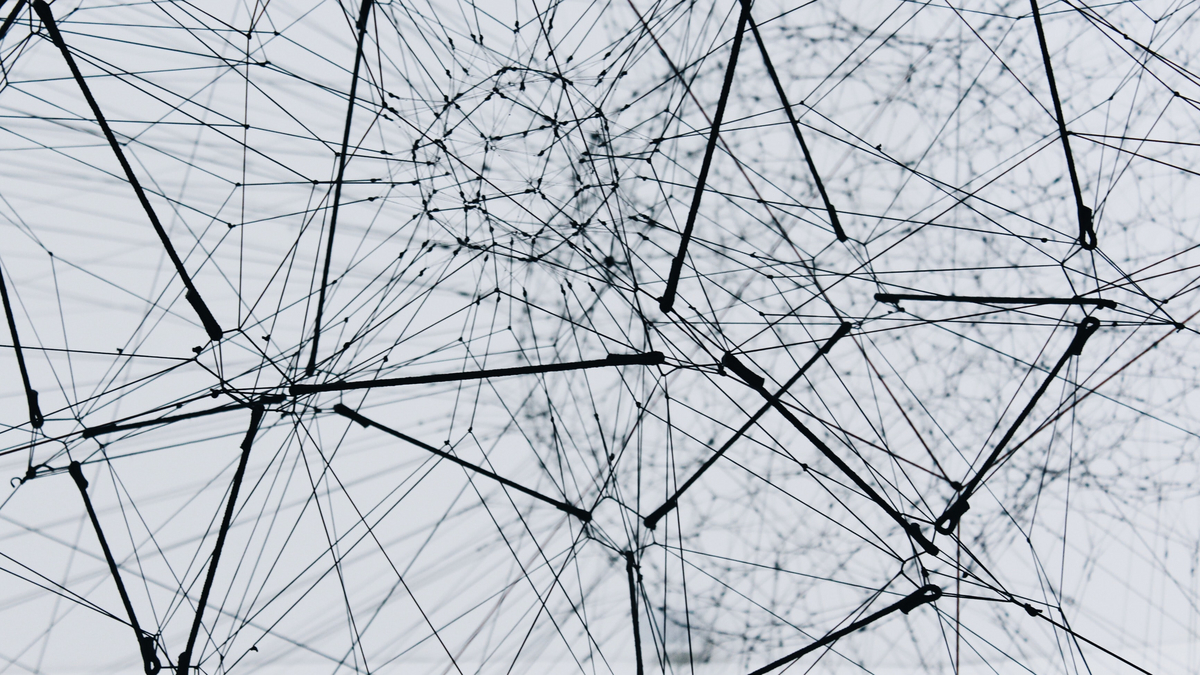Workshop Proceedings | 12. May 2023
'Archiving Efforts' – Securing and Long-Term Archiving of Social Media Data (Show & Tell – Social Media-Data in Research Practice III – summer 2023)
By Christoph Eggersglüß

Abstract metal structure
"Low-angle photography of a metal structure" CC0 Creator: Alina Grubnyak
Lecture and discussion series "Show & Tell – Social Media Data in Research Practice" (online)
Summer Semester Focus: 'Archiving Efforts' – Securing and Long-Term Archiving of Social Media Data
The working group 'Social Media Data', an initiative of NFDI4Culture together with BERD@NFDI, KonsortSWD and Text+ within the framework of the National Research Data Infrastructure, has been organising the lecture and discussion series "Show & Tell – Social Media Data in Research Practice" since the beginning of 2022.
In the coming summer semester, we want to focus on archiving and look at problems from the perspective of archives and repositories as well as researchers. The focus will be on the time-critical capture and long-term archiving of text and image data from social media and the systematic preservation of dynamic and high-frequency content from distributed platforms and apps.
What does it mean to understand messages and threads, images and videos, layouts and designs not as more or less static data, weakly structured tables and lists, files and datasets, but also to include the respective interfaces, programming environments and contexts of their generation and presentation in the 'archiving effort'? How can this research data be sustainably secured and the knowledge gained from it be kept reproducible in the long term?
PROGRAMME
Summer Semester Focus: 'Archiving Efforts' – Securing and Long-Term Archiving of Social Media Data
- Show & Tell VII (12.05.)
Taras Nazaruk (Center for Urban History, Lviv): "Emergency Archiving – Telegram Archive of the War" (slides)
Being in the state of war – among many other things – means scrolling updates constantly. Telegram has become an everyday go-to app for millions of Ukrainians since the full-scale invasion. The social media platform does not only reflect on current developments but also affects the warfare and wartime experiences directly. As captured and documented, it creates evidence, covering all areas from the battlefield to the everyday routine across Ukraine on either side of the frontline. How do we capture, assess and make accessible such flows for future research, considering the legal and ethical complexity of documenting social media? With no definitive methodological answers but as an emergency effort, the Center for Urban History launched this archiving initiative to preserve the social media practices of the war in Ukraine as well as to document how Ukrainians learn, live, and share testimonies through Telegram.
- Show & Tell VIII (26.05.)
Britta Woldering & Claus-Michael Schlesinger (DNB & Universitätsbibliothek der Humboldt-Universität zu Berlin): "Tweets archivieren in der DNB" (slides)
Twitter und das Twitter-Archiv sind für viele wissenschaftliche Disziplinen eine wichtige Forschungsquelle. Mit der Übernahme durch ein Investorenkonsortium ist die Plattform in Turbulenzen geraten. Twitter hat bereits mit dem Umbau der Plattform begonnen und weitere Änderungen sind zu erwarten. Nutzende haben sich in mehreren Wellen von Twitter distanziert oder ihre Accounts gelöscht. Aufgrund dieser Entwicklungen erscheint der wissenschaftliche Zugriff zunehmend unsicher. Aus kulturgeschichtlicher und archivarischer Sicht ist es dringend erforderlich, wenigstens einen Teil des Twitter-Archivs zu sichern und zu bewahren. Deshalb ruft eine Initiative aus dem Science Data Center for Literature und der Deutschen Nationalbibliothek zu einer konzertierten Aktion zum Herunterladen möglichst aller deutschsprachigen Tweets auf. Wir beschreiben die gemeinsame Initiative und den aktuellen Stand und stellen einige Punkte hinsichtlich der weiteren Perspektiven für die fortgesetzte Archivierung und künftige Bereitstellung zur Diskussion.
- Show & Tell IX (23.06.)
Katrin Weller (GESIS / CAIS): "Data Sharing in Social Media Research: Insights to Researchers' Practices and Challenges" (slides)
Social media data can help to identify attitudes and opinions, behaviour, and characteristics of human users of digital technologies. Development of best practices is impacted by the changing nature of social media platforms and users. The talk presents some researchers‘ practices and experiences in data sharing as well as legal, ethical and archival challenges.
Please register here for the zoom room (on selected Fridays at 11:00 a.m. - preferably with an institutional address, the link will be sent shortly before): https://adwmainz.zoom.us/meeting/register/tJwld-2qrjspHdOyIg3wjmEIRxYezQAVZ7Jm
The series is dedicated to tools in the field of social media research and wants to highlight best practices of selected projects. In addition to pragmatic solutions and technical possibilities (interfaces, repositories, metadata standards, interoperability ...), the focus is also on ethical and legal challenges (e.g. personal rights and copyrights) in the sustainable, secure and critical handling of this data (code and data literacy, FAIR & CARE principles). Last but not least, we would like to invite you to discuss interdisciplinary research approaches and teaching methods that strain traditional and subject-specific frameworks and tools.
The first talks and discussions of the Show & Tell series took place in the summer term 2022 on 'Twitter Tools', 'Social Media Corpora' and 'Multimodal Data'. In autumn/winter 2022/23 we dealt with 'Reddit Data', 'Memes, Platform Data, and Computer Vision' as well as 'Social Bots' and their detection. The focus of the series was on interfaces and customized tools for collecting, linking and analysing. The aim was to exhaust APIs such as terms of use and to identify intersections between the participating consortia and data communities.
A cooperation series of
BERD@NFDI – Consortium for Business, Economic and Related Data
KonsortSWD – Consortium for the Social, Behavioral, Educational and Economic Sciences
NFDI4Culture – Consortium for research data of tangible and intangible cultural assets
Text+ – Consortium for text- and language-based research data
If you are interested in presenting and discussing your project, repository or research project (probably in the coming semesters), please contact us with a short proposal for a contribution (title, links and a short abstract of three to four lines).
coordination: christoph.eggersgluess (at) uni-marburg.de